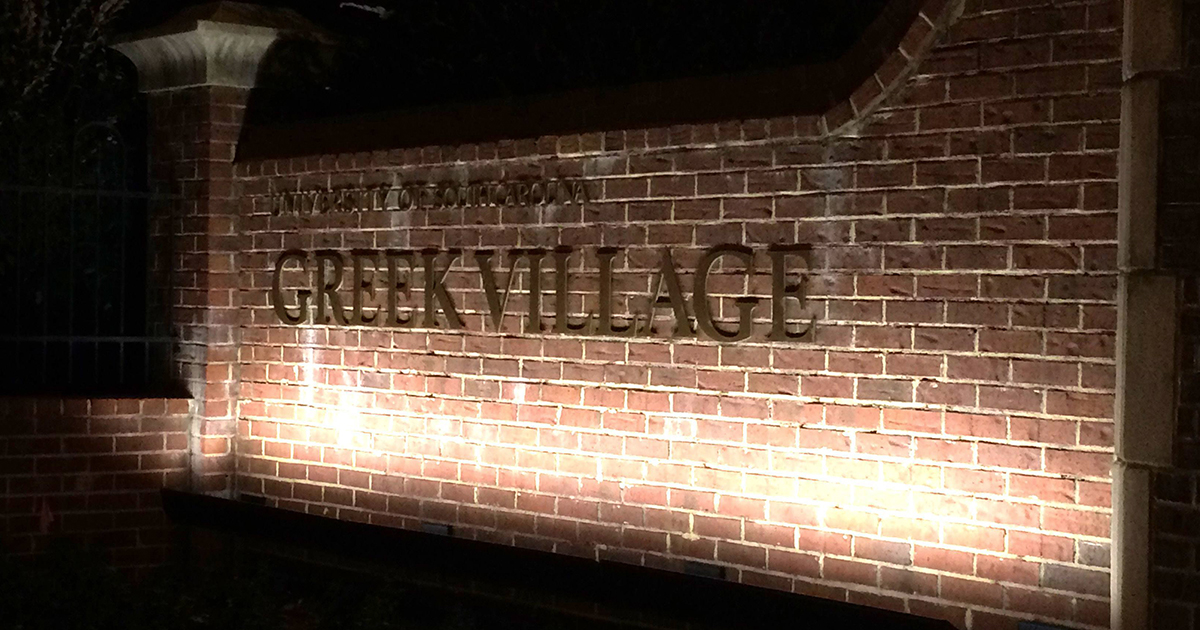
A chapter president at the University of South Carolina shares his pledging experience, his chapter’s near closure and what it took to turn everything around.
Like a lot of guys who end up joining fraternities, I never saw myself going Greek. I had a full ride with an Army ROTC scholarship, and I knew I’d be plenty busy with class.
Towards the end of my first semester, I started to feel like something was missing, and wondered what it would be like to join a fraternity. Still, I was worried that any distraction could cost me my scholarship, and it was no secret that fraternities at the University of South Carolina offered plenty of distractions.
Even today, anyone who spends a few weeks on my campus can see that lots of fraternities are actively hazing pledges and partying harder than non-Greeks. It’s the heart of SEC “frat” culture.
Then I met the guys at SigEp. Things seemed to be different. They told me they didn’t put up with hazing. Even though they were a pledge model chapter, they talked about brotherhood, equal rights and continuous development. So a few weeks later, along with my best friend Zach Knight, I accepted an invitation to pledge the South Carolina Alpha Chapter.
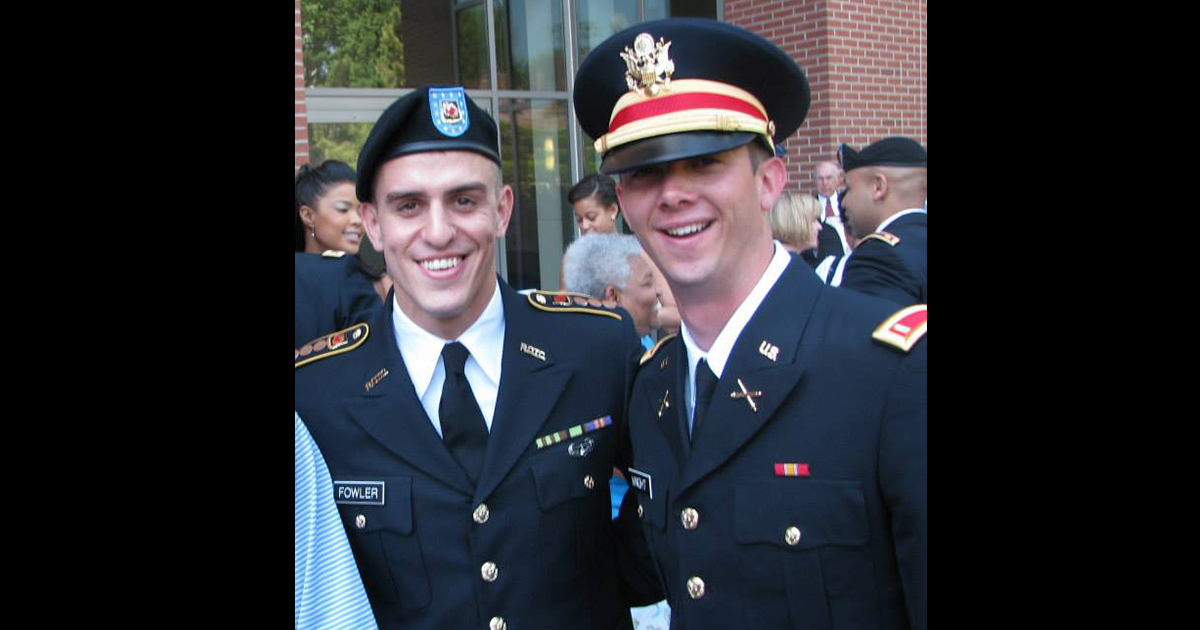
Life as a pledge
As soon as I signed my bid card, things started to change. Zach and I became second-class citizens.
There were endless requests to run errands (never at a reasonable hour of the day), and my pledge brothers and I were the constant target of insults. It was like the stuff you read about in psychology textbooks. Guys who had been welcoming and friendly just days before now treated us like dirt. The strangest part was how much they seemed to enjoy it.
I remember texting Zach to see if he was as weirded out by the whole thing as I was.
“Is this what you thought we signed up for?” I asked.
“Not at all,” he responded. “Maybe it will get better … but we need to see it through.”
That hope that things would improve never came true.
Pledge meetings were regular excuses for older guys in the chapter to take out their aggression on pledges. I hated these meetings, but I was able to zone out and keep my cool, reminding myself that the loudest guys were typically overcompensating for some personal shortcoming. The irony of listening to some junior with a 2.0 GPA and a beer belly yell at us about SigEp’s history and values wasn’t lost on Zach and me.
One night, after hours of listening to constant insults and repeating fraternity trivia, we were informed that the evening would only be getting worse.
“Go home. Get a t-shirt, gym shorts, and something to use as a blindfold,” an older member of the chapter told us. He gave us the address of an off-campus house and told us to be there in 30 minutes.
Against our better judgment, Zach and I followed the directions. For the next four hours, behind locked doors in an obscure location where no one would find us, we went through the worst hazing I could have imagined.
I won’t go into all the details, but it was a bastardized version of old school military hazing—the kind of stuff you imagine poorly trained militias in third world countries still use.
The ideas of “tradition” and “team building” went out the window in the first five minutes. They said this would bring us together and pointed to the military as proof. Having spent my fair share of time in Army training, I knew that that was a stretch.
In the Army, you’re pushed to the limit physically and mentally in preparation for life or death situations. Your drill sergeants are experts, trained to keep you safe.
This was different. This was another excuse for college kids with low self-esteem to enforce a power structure that put them at the top.
The brothers with demanding course loads, other campus responsibilities and girlfriends were too busy to spend their evening hazing us. We were left with the guys who really didn’t have anything better to do.
Looking around the room at my pledge brothers I didn’t see anyone growing closer—they were only enduring. What I did see were guys who intended to call me “brother” in a few short weeks destroying the confidence and self-esteem of my pledge brothers for their own emotional gain.
The night finally came to an end, as did the semester. I was initiated, but things never changed. A new group of innocent young men was now experiencing the same ridicule I had experienced. I could no longer tune it out.
I tried to decide if I should talk to someone about what was going on in the chapter. I didn’t know if I could trust anyone—least of all the executive board. My head was a mess, and I was still weighing my options when I got a text from Zach.
“It’s over,” he texted me. I couldn’t comprehend what he was saying.
“What do you mean?” I wrote back.
“The chapter’s closed. We’re getting kicked off campus. It’s all over.”
The aftermath
The next few months were a blur. We weren’t actually kicked off campus, but everything was locked down. Nothing was happening.
I was constantly sick to my stomach thinking, “Did I go through this for nothing?” and “Why didn’t I say something sooner?” I couldn’t imagine what it felt like for our alumni who had just built a new $3 million chapter home. Whatever they were feeling, they seemed eager to fix things.
A membership review team interviewed each of our 130 members—pledges and initiates—to ask us about our willingness to put the chapter back on track.
After the interviews, Zach and I were among the 20 members who stayed with the chapter. Unfortunately, it wasn’t long before 20 became two. In the end, it was just Zach and me from the original 130.
It was almost laughable. We had started out together because something was missing in our college experience. It felt like we were back where we started; only now we were worn out and felt betrayed by guys who had been our friends.
Despite the overwhelming odds, we felt we owed it to ourselves and to our alumni and volunteers to try and rebuild. We still had people who believed in us and wanted to see South Carolina Alpha succeed. So with a lot of help, and five brand new members, we set out to establish something unheard of on our campus: a fraternity that actually wanted to be different.
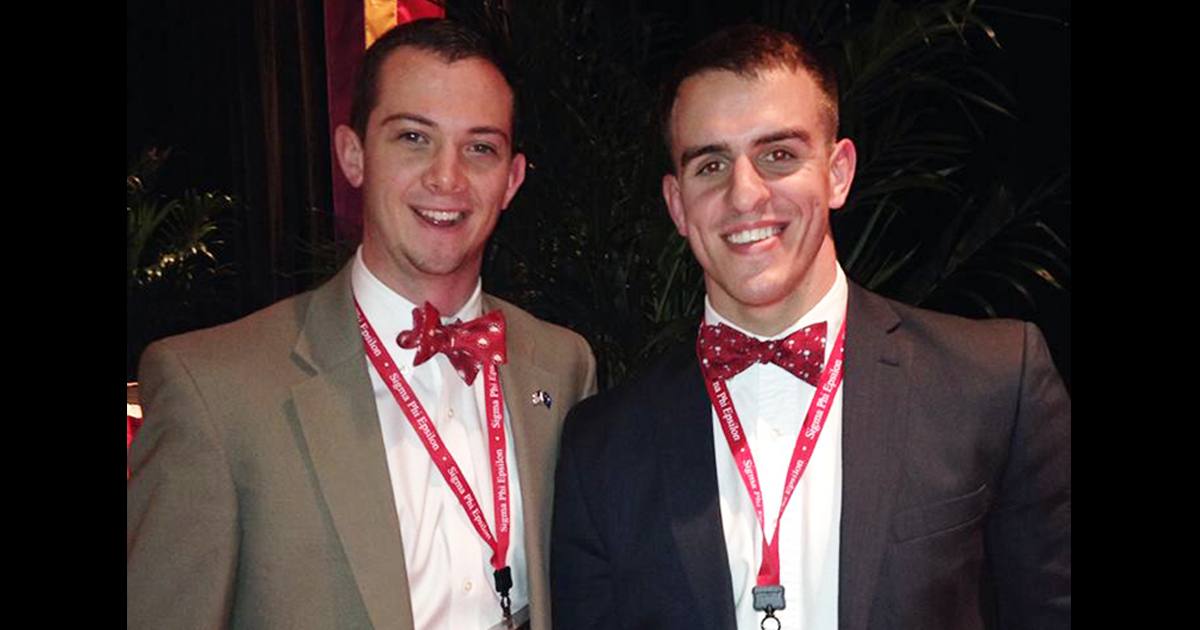
Rebuilding a chapter
The past two and a half years have not been easy, but we have built something that really is special. Our pitch isn’t that different than the one we heard when we first met SigEp, but now we’re actually walking the talk.
We adopted the Balanced Man Program and, with the help of our volunteers, built a fraternity experience that is giving students at South Carolina an opportunity to become better men, students and leaders.
We stand out on campus, and we’re proud of that fact. We have recruited varsity athletes, campus leaders and guys who are landing internships at Fortune 500 companies.
Last year I could count the manpower of our chapter on one hand. Today we’re at 54 men, and we’re recruiting more every month. Our 3.4 chapter GPA is the highest on campus, and we just got back from Carlson where we found out we were awarded a Scholastic Excellence Cup and a Recruitment Excelsior Award. But that’s not all—our next chapter president was selected to go on the 2015 Tragos Quest to Greece, and I had the honor and privilege of being named a Zollinger Outstanding Senior.
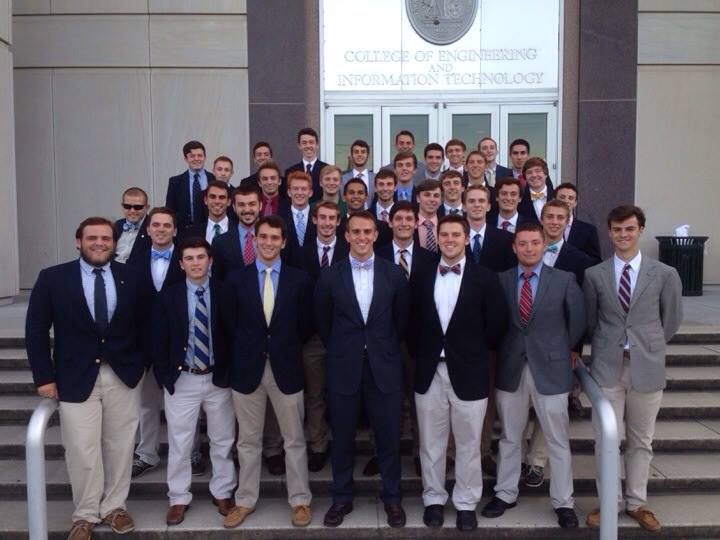
Why I’m sharing my story
You might be wondering what would make me share all of this. Despite the awesome moments of recent semesters, these aren’t all positive memories. I’ve made my fair share of mistakes, and I’ve lost a lot of friends along the way.
Still, the hardest thing wasn’t losing friends, it was living with the knowledge that I didn’t say something sooner. My parents and the Army taught me to stand up for my beliefs and to lead others, but for the better part of a semester, I didn’t do that.
I’m sharing my story in hopes that it can help other SigEps who might be in a similar place.
If your chapter isn’t living up to your values and you want to see change, it has to start with you. More than anything, you must find the courage to ask for help. There are thousands of volunteers and alumni who understand what this is like. When I finally had the courage to reach out, I couldn’t believe how many people were standing by ready to jump in.
The right path isn’t always the easy path. That much is clear. But as SigEps, we don’t take an oath to just do the easy thing—we vow upon our honor to live SigEp’s values day in and day out, no matter how high the stakes might be. That’s what it means to be a SigEp.
Max Fowler is a senior at the University of South Carolina and the current president of Sigma Phi Epsilon South Carolina Alpha. He can be reached at fowlerwm@email.sc.edu.
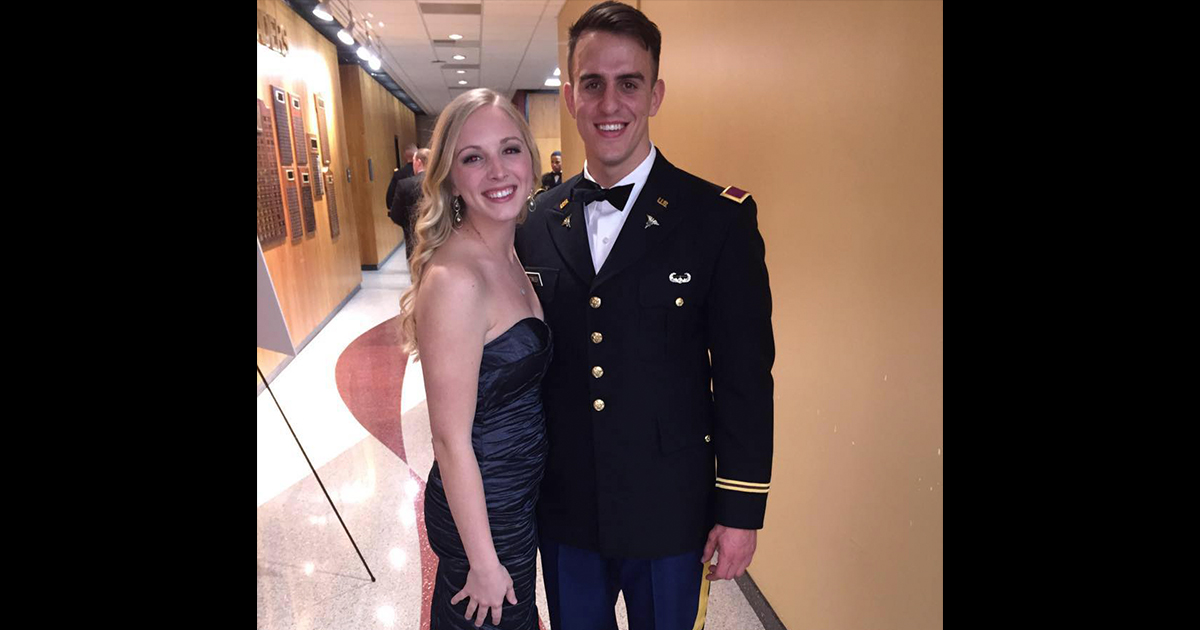









Leave a Reply